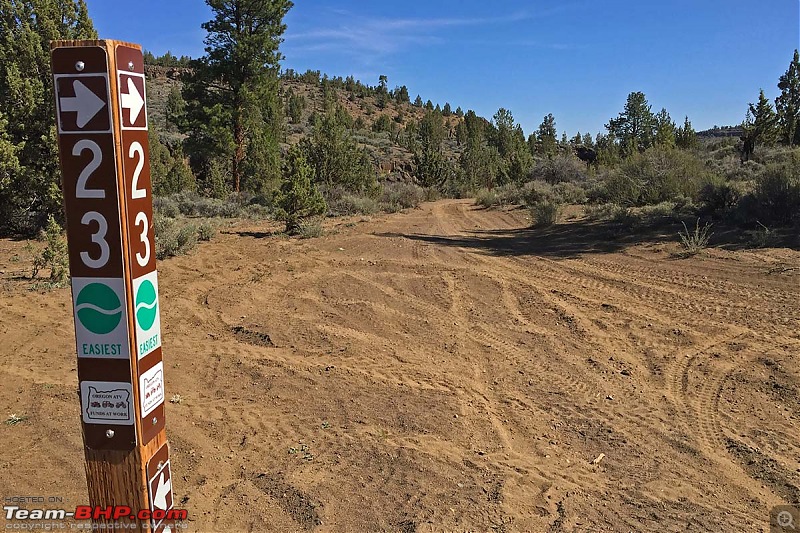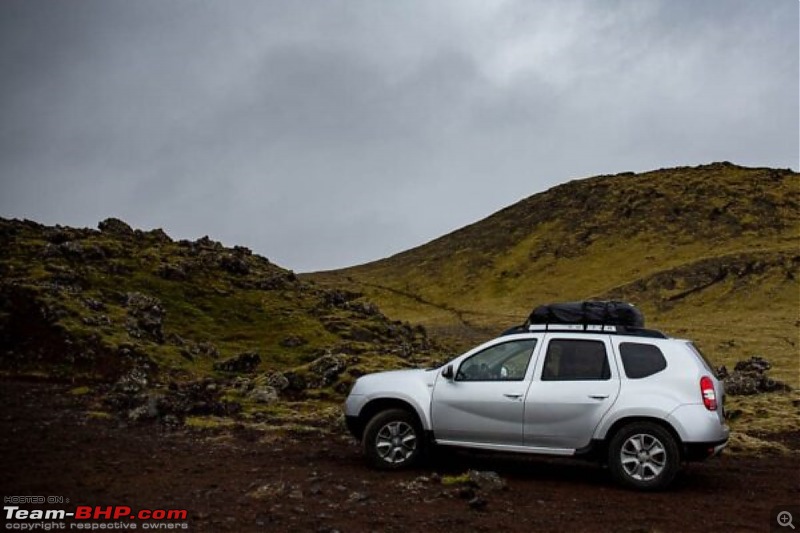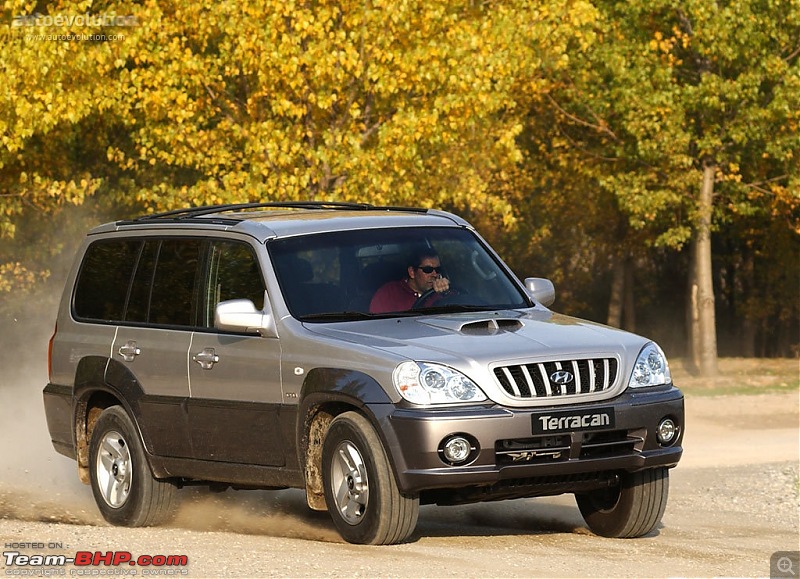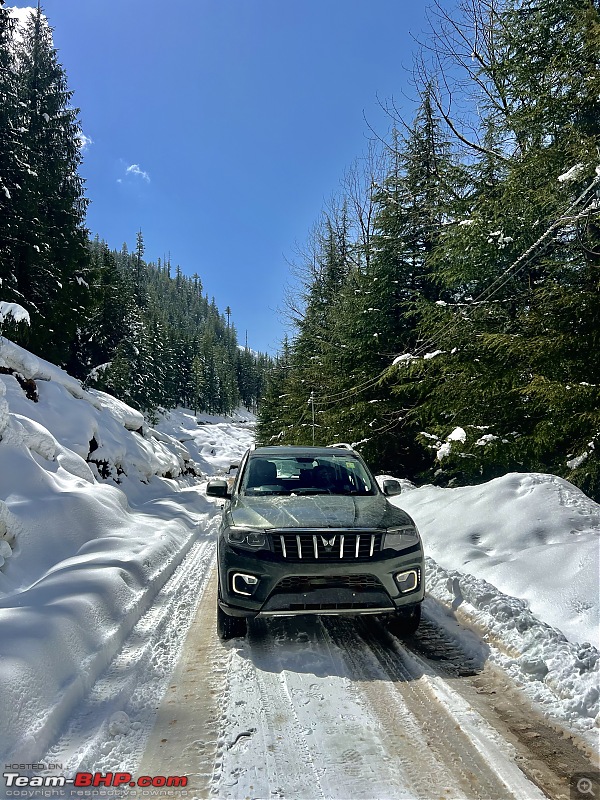The Environmental Impact of Irresponsible Off-Roading - and how you can minimize your impact
Thank you so much D-BHPian tejas@perioimpl for your valuable input for this thread! 
Introduction:
As off-roading becomes a more popular activity with every passing year in India, thanks to the launch of great new 4x4s like the Mahindra Thar and the Maruti Jimny, it is important that off-road drivers are aware of their impact on the natural environment, especially when they perform off-roading irresponsibly. With this goal in mind, I and a group of classmates at my school set out with the aim of spreading awareness and promoting education about the environmental impact of off-roading - and how recreational off-roaders can minimize their impact. As part of this project, we were keen on gaining valuable first-hand input, and interviewed D-BHPian Dr. Tejas Kothari (tejas@perioimpl), who is Asia's only I4WDTA-certified off-road training instructor. His input was key to this thread and our project and we are extremely grateful for it. And so, let's begin on some of the impacts and how you can minimize your impact.
Stick to the trail!
When driving off-road, always stick to designated trails and paths. They have been marked out for a reason. When you deliberately veer off a trail, not only can you cause damage to the animals and plants that live on natural land where there is little human intervention - but you can also risk getting yourself lost. Environmental impact aside, this is a brilliant entry under the 'Dumb Ways to Die' list. But veering off-trail isn't just stupid - it's also a great way to damage the environment. There is absolutely zero reason to step into undisturbed land inhabited by other creatures - it shows an utter disregard for the fact that these species that are often displaced by human activity. Also, there is the possibility of even venturing into someone's farmland or disrupting the road used by bullock carts and livestock - which can potentially land you in a LOT of trouble. If you do accidentally veer off-trail, do not continue to explore further - make returning to the trail your top priority. It happens to the best of us at times - just remember that getting back on the trail should be your only focus in these situations.

Avoid Littering
Thankfully, Team-BHPians and most recreational off-roaders in general are well-educated and hence are much less likely to deliberately litter our surroundings and fill natural land with waste as if every square meter of land could be converted into a landfill. With regards to deliberate/regular littering, Dr. Tejas was keen to point out that it is often just non-enthusiasts who end up doing these sorts of activities (seasoned off-roaders are a lot more careful), bad-naming off-roading as an activity in the process. As a suggestion, it's not a bad idea to have a trash can a la Volvo XC40 or at least a few trash bags in your 4x4 when you go off-roading - that way, you're helping ensure that you leave the place almost untouched in terms of polluting the environment. During camping/overlanding trips, this should actually be a requisite - or else future generations may not have any non-polluted land to use for off-roading and overlanding.

No donuts wherever they shouldn't be done - please 
As fun as drifting and doing donuts is, it's always better to either engage in it on-road (preferably at a track) or do it in a designated donut zone. Donuts and drifting can, at a larger scale, cause a lot of damage to the soil in the form of erosion to the topsoil that can make soil less fertile and usable but also potentially raise water levels. At Learn Offroad, Dr. Tejas' off-road training academy in Maharashtra, off-roaders can only drift on a small quarter-acre designated patch of land - nowhere else can off-roaders perform drifting. If you do wish to drift or do some donuts off the asphalt, Dr. Tejas recommends doing so only on private property that is demarcated specifically for drifting - and this way, we can contain the environmental damage that drifting causes.

Learn Offroad! (wordplay intended)
I cannot stress on how crucial proper off-road training can be for first-time off-roaders. if you're planning to give off-roading a try - do it, by all means, but
not without training. For Bombay and Pune based BHPians, Dr. Tejas' academy is definitely my recommendation. After you're educated about the consequences of irresponsible off-roading, you'll be a lot more conscious about all the dangers of irresponsible driving on the path less taken - not just the environmental consequences. When first-time off-roaders are trained properly before going out into the wilderness, they aren't just more educated about what to do and what not to do. However, they're also more equipped to handle dangerous situations on the trail - and overall, they're also more responsible humans who can help keep the off-roading hobby alive for future generations.

Remember - your Jeep does not run on miracles
Off-roading is an awesome activity. The thought of tackling tough terrain in a massive 4x4 all day sounds like the sort of stuff the cavemen probably dreamed of. However, always remember that off-road cars (even future electric off-road cars) do not run on smiles (they do leave them on your face though

) - and as a consequence, while I am
NOT saying that you should never gas up your 4x4 or even drive a 4x4 (that is terrible advice that only a non-enthusiast can give), it does help to be conscious of the emissions your vehicle produces. Very few of us on the forum can claim to be role models for net-zero-adjacent living - but together, if we're more conscious of our actions, we can help make our favourite automotive activities more sustainable, enabling future generations to enjoy them in all their gassed-up glory.


 (39)
Thanks
(39)
Thanks

 (3)
Thanks
(3)
Thanks

 (5)
Thanks
(5)
Thanks
 (1)
Thanks
(1)
Thanks
 (3)
Thanks
(3)
Thanks
 (2)
Thanks
(2)
Thanks
 (4)
Thanks
(4)
Thanks
 (3)
Thanks
(3)
Thanks
 (4)
Thanks
(4)
Thanks

 (4)
Thanks
(4)
Thanks
 (1)
Thanks
(1)
Thanks










 ) - and as a consequence, while I am NOT saying that you should never gas up your 4x4 or even drive a 4x4 (that is terrible advice that only a non-enthusiast can give), it does help to be conscious of the emissions your vehicle produces. Very few of us on the forum can claim to be role models for net-zero-adjacent living - but together, if we're more conscious of our actions, we can help make our favourite automotive activities more sustainable, enabling future generations to enjoy them in all their gassed-up glory.
) - and as a consequence, while I am NOT saying that you should never gas up your 4x4 or even drive a 4x4 (that is terrible advice that only a non-enthusiast can give), it does help to be conscious of the emissions your vehicle produces. Very few of us on the forum can claim to be role models for net-zero-adjacent living - but together, if we're more conscious of our actions, we can help make our favourite automotive activities more sustainable, enabling future generations to enjoy them in all their gassed-up glory. 





